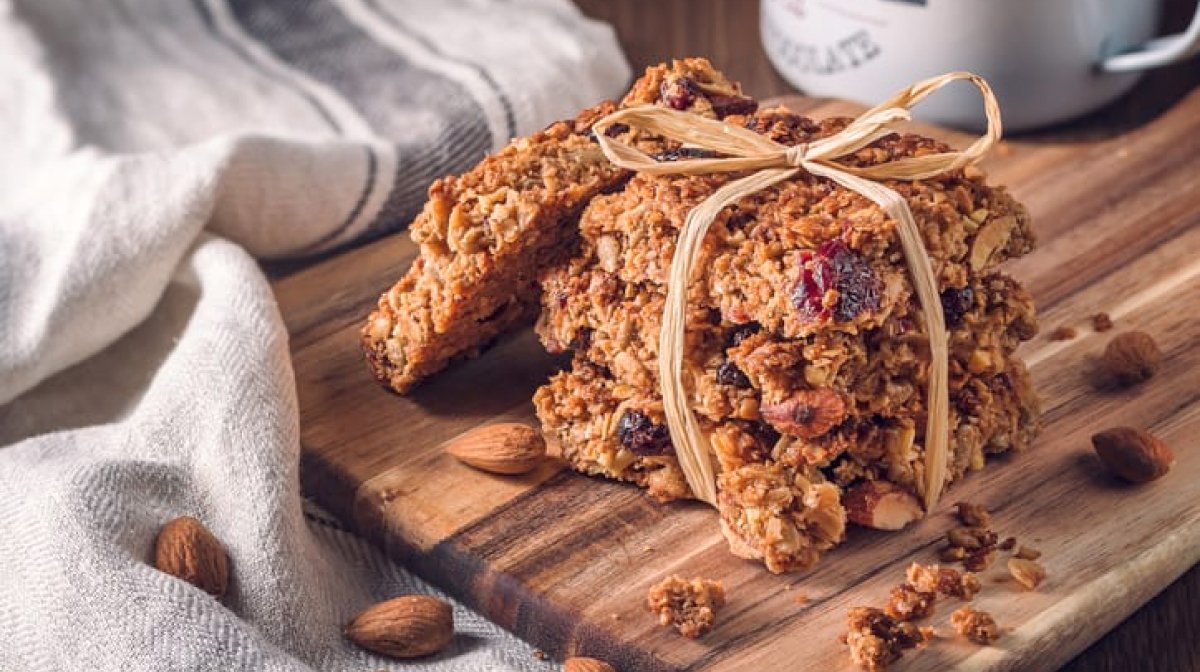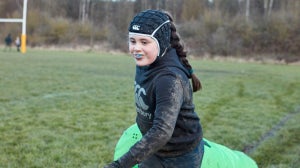
For the competitive rugby player, it is better to think not just of meals, but also of snacks – the flapjack is your friend! By regulating your breakfast, lunch and snack intake, you will find it easier to stick to your diet and ultimately improve your performance on the field.
Snacks allow you to tailor your diet more precisely than just meals alone. Rugby nutrition is behind every success story in the game, and you should think about using protein flapjacks, muscle shakes and even humble peanut butter to fuel your body.
Your body is an engine that needs regular top-ups. If you are trying to bulk up, then weight-gain shakes and peanut butter are a good idea, rather than living off fry-ups. The professionals believe in nut butters and muscle food such as tuna steaks and chicken to build up their body for rugby.
Snacks make the star
A rugby professional will often eat a snack as part of their pre-game preparation, and you should remember to refuel after any bout of training. Healthy snacks to consider are fruit, mixed nuts and protein flapjacks to keep you ticking over and to help refuel your body. It’s also important to recognise that often, when you feel hungry, you are actually thirsty – we should all be drinking at least two litres of water every day.
Shakes for bulking
For many rugby players, nutrition is about adding timber to absorb the blows. Weight-gain shakes are used by professionals who also want to stay lean and mean. These can come in flavours such as cherry, chocolate or peanut butter Peanut butter is very high in calories so it is ideal for weight gain, and for treating the body after a punishing training session or game.
Moderation, moderation, moderation
Of course, all this advice about snacking comes with a caveat; while you need high-quality carbs and protein post-workout to help yourself recover, you also need to have an in-tray and an out-tray. Every calorie consumed should be burnt off, unless you are keen to gain bulk.
As former international and rugby nutritionist TJ Jankowski states, eating a lot of calories after a game will help you to recover, but only a little bit of peanut butter goes a long way – it’s better to eat healthy rugby snacks such as fruit. You need to moderate your intake.
Naturally good
If you stick to nature’s bounty, your digestive system will thank you. Any processed foods will be less filling, according to the experts;. that energy drink will not replenish you in the same way, and you simply won’t be as competitive on the field. Fruits, oatcakes and your friendly flapjack are a better option, containing none of the muck that processed foods do.
Do or diet
You cannot use a rugby diet to detox or cleanse your body. The best thing is to pick a regime you can adhere to, one that uses snacks wisely to give you the energy to train. Superfoods aren’t as useful as the humble fruits – as Jankowski says, “it is a made-up marketing term that allows the price of said food to be higher”. Be kind to yourself, and have faith in fruit and veg!









